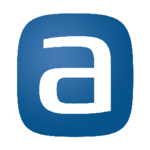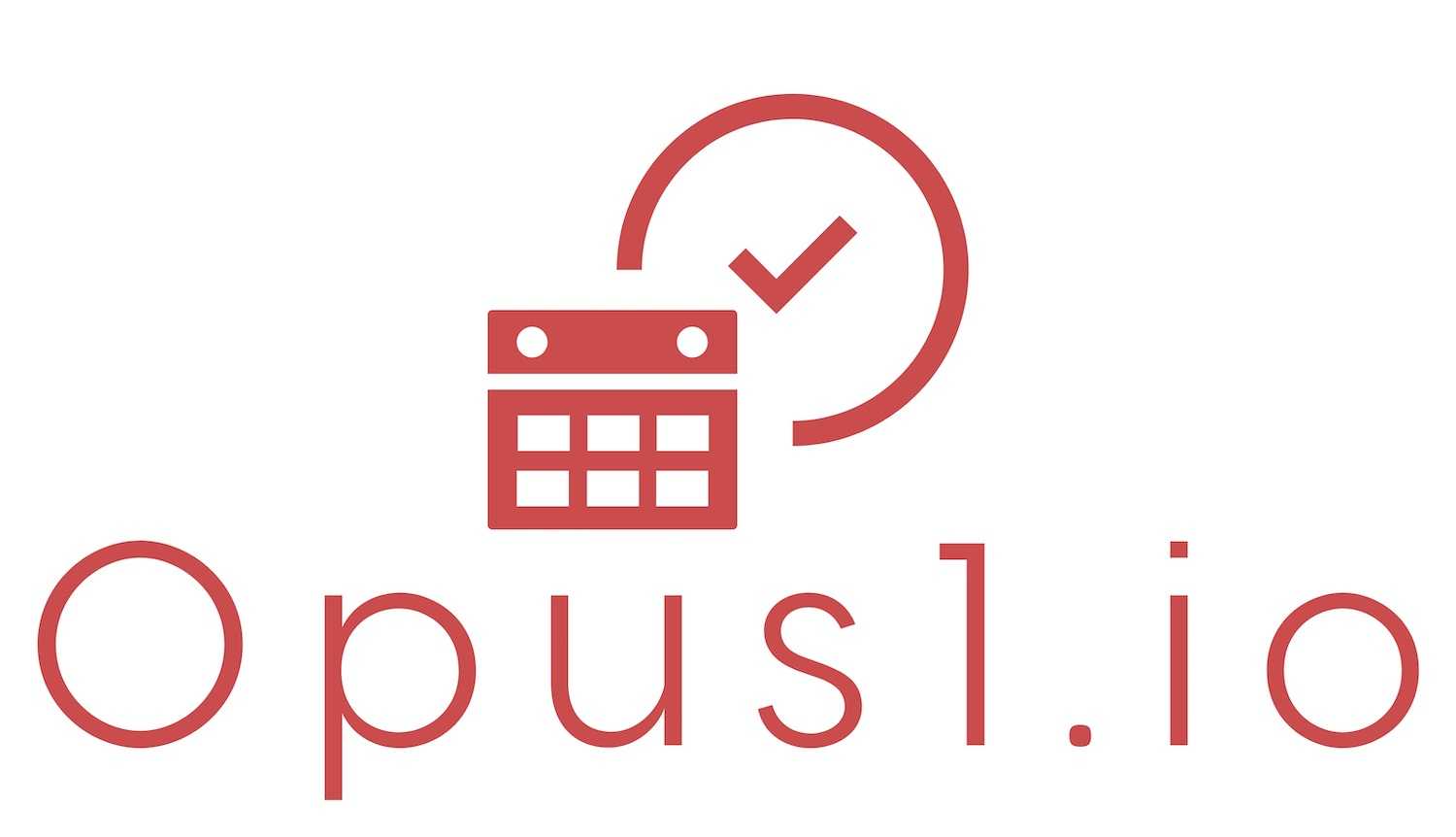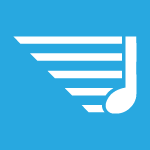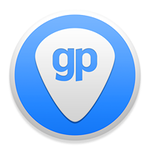Yes, most music school software is compatible with numerous devices and platforms. Desktop computers, laptops, tablets, and smartphones are among the devices covered. The software is frequently web-based, which means it can be accessed from any device with a web browser. Many music school software companies also provide mobile apps for easy access while on the go. However, it is critical to check with the software supplier about compatibility with different devices and systems.
List of Best Music School Software
Teachworks is a business management solution crafted specifically for education businesses. Our software streamlines communication, simplifies billing procedures, and effectively manages class and lesson schedules. It also maintains accurate records...Read More Teachworks
ASAP is a software solution for educational institutions. This powerful tool handles all administrative tasks, from registration to reporting, with ease. By streamlining processes, ASAP increases efficiency, freeing up organizations to focus on provi...Read More ASAP
ASIMUT is adaptable software that caters specifically to fine arts institutions. It streamlines scheduling, room bookings, and event management, making it an essential tool for schools globally. By offering efficient planning and communication capabi...Read More ASIMUT
Classter - an all-inclusive platform that revolutionizes IT infrastructure management for educational institutions. With Classter, your school can seamlessly integrate admissions, alumni management, SIS, SMS, LMS, ERP, and CRM, streamlining processes...Read More Classter
IndieFlow is a music industry-focused workflow management software that simplifies the artists career management. It provides a platform for project management, distribution, royalty collection, promotion, gig bookings, and payments. This enables mus...Read More IndieFlow
Opus1.io is a software for managing your music school. Our comprehensive platform simplifies all aspects of running a music school, from client management to teacher scheduling and payments. With features like self-booking for trial lessons and make-...Read More opus1.io
My Music Staff is a studio management solution for private music teachers and studios. Simplify your music teaching business with features like student management, personalized scheduling, and secure online payments. Start your 30-day free trial toda...Read More My Music Staff
Noteflight is a top-tier, web-based program for composing, performing, and sharing music. With its extensive collection of over 80,000 digital sheet music options and advanced capabilities, it is the perfect resource for musicians, teachers, and lear...Read More Noteflight
Guitar Pro, the must-have software for musicians of all levels. With its comprehensive range of tools, including a metronome and chord libraries, Guitar Pro enhances your songwriting and collaboration experience. Experience lifelike audio playback as...Read More Guitar Pro
Experience the ultimate ease and efficiency in music education management with Music Teachers Helper. Our user-friendly online platform is designed specifically for music educators, simplifying the tasks of scheduling, billing, and student management...Read More Music Teacher's Helper
Jackrabbit Music - a premier management solution designed specifically for music schools. Our advanced software streamlines various tasks such as billing and lesson scheduling, while also enhancing communication with students and parents. With automa...Read More Jackrabbit Music
Charms is a specialized management software designed for music programs. It effectively handles administrative tasks for music directors, allowing them to devote more time to developing student talent and fostering musical excellence. From organizing...Read More Charms
Pike13 is a cloud-based client management software designed for optimal mobile usage. It simplifies tasks such as attendance tracking, payment and staff payroll management, and report generation. The software also offers branded and staff apps for a...Read More Pike13
Optimo is solution for effortless management of your music department. Our software is backed by years of industry experience and seamlessly handles student management, performance groups, and instrument loans. Say farewell to manual spreadsheets and...Read More Optimo
Art Center Canvas is a software solution designed for art education centers. This comprehensive tool streamlines administrative tasks such as class registration, ticketing, and membership management, maximizing the efficiency of your organization. Wi...Read More Art Center Canvas
La Touche Musicale is a app for piano lovers. This dynamic and user-friendly app is designed to help you learn and play your favorite songs on the piano effortlessly. Suitable for both beginners and advanced players, La Touche Musicale offers an intu...Read More La Touche Musicale
Learn More About Music School Software
- What Is Music School Software?
- What Are The Recent Trends In Music School Software?
- Benefits Of Using Music School Software
- Important Factors To Consider While Purchasing Music School Software?
- What Are The Key Features To Look For In Music School Software?
- Why Do Businesses Need Music School Software?
- How Much Time Is Required To Implement Music School Software?
- What Is The Level Of Customization Available In Music School Software?
- Which Industries Can Benefit The Most From Music School Software?
- Conclusion
What Is Music School Software?
Music school software is a sophisticated tool for managing and administering music schools, conservatories, and other educational institutions that teach music. It streamlines and automates several operations, including student enrollment, scheduling, communication, and performance tracking. This software is specifically created to meet the unique demands of both music educators and students.
One of the most important characteristics of music school software is its complete student management system. It enables school administrators to manage student information, enrollment status, and performance records on a single centralized platform. This not only saves time and effort, but also ensures that data is managed accurately and efficiently.
Furthermore, music school software includes comprehensive scheduling features that make it easier to organize class schedules, sessions, and performances. Instructors may create and amend schedules with a few clicks, and students and parents can view and access them online. This encourages effective communication by eliminating the need for manual scheduling or back-and-forth emails.
Music school software also includes communication capabilities to help instructors, students, and parents communicate more effectively. It enables the quick and easy broadcast of crucial notifications, lesson reminders, and other essential information. This not only improves communication, but also promotes transparency and fosters a strong bond between the school and its pupils. Furthermore, performance tracking is an important component of music education, and music school software helps to monitor and analyze student progress.
It generates extensive information on attendance, grades, and general performance, allowing teachers to modify their teaching approaches and provide targeted support to students who require it. Overall, music school software is a must-have for any music school wanting to streamline operations and improve student learning experiences. With its user-friendly design, comprehensive capabilities, and quick workflow, it is an excellent investment for music educators and a critical part in the success of a music school.
What Are The Recent Trends In Music School Software?
As technology advances and revolutionizes the education business, music schools are seeing a shift in how they handle administrative work, student enrollment, and lesson planning. This has resulted in the introduction of music school software, which streamlines and automates many processes, thereby improving the entire learning experience.
One of the most recent trends in music school software is the incorporation of virtual and remote learning features. With the rise of online education, many music schools are now offering virtual lessons and classes to broaden their reach and serve students from all over the world. This tendency has resulted in the creation of software that enables flawless virtual teaching, complete with interactive tools and features that replicate in-person courses.
Another trend is the use of advanced scheduling and calendaring systems. Music schools frequently use a sophisticated scheduling system with several professors and students. To simplify the process and eliminate disputes, music school software now includes automated scheduling, calendar syncing, and real-time updates, making it easier for instructors to manage their schedules and students to plan sessions.
Furthermore, many music school software now includes personalized learning capabilities. This means that the software can adjust to each student's specific needs and ability levels, resulting in tailored lesson planning and progress tracking. This not only improves the learning experience for pupils, but also enables teachers to modify their teaching methods accordingly. Another major development is the merging of student and parent portals.
With parents becoming more involved in their children's education, several music school software companies now provide portals that allow parents to follow their child's progress, organize their lessons, and connect with their child's teachers. This feature improves transparency and communication, which can lead to better student results. Finally, music school software is shifting toward data analysis and reporting.
Advanced reporting systems enable schools to assess and track data on student attendance, performance, and progress. This enables schools to identify areas for development and make data-driven decisions that improve their teaching techniques. As you explore investing in music school software, keep these recent trends in mind to choose a solution that meets your school's objectives while also aligning with present and future educational market demands.
Benefits Of Using Music School Software
Music school software is an effective tool for streamlining administrative work and improving the overall administration of music schools. This type of software provides a diverse set of features and benefits that can considerably assist music school owners, administrators, teachers, and students.
If you're thinking about investing in music school software, here are some significant benefits to consider:
1. Simplifies Administrative Activities: Music school software automates tasks like student enrollment, scheduling, billing, and attendance monitoring, allowing administrators to better manage the school's day-to-day operations. This not only saves time and labor, but also lowers the possibility of human error.
2. Improved Communication And Collaboration: Many music school software packages feature a communication platform that facilitates communication and collaboration among students, teachers, and parents. This can include communications, instructional notes, and progress reports, which help everyone stay on the same page.
3. Customized Lesson Planning: The software enables music teachers to design lesson plans tailored to each student's ability level and learning style. This enables teachers to give more tailored instruction, resulting in improved student engagement and development.
4. Efficient Scheduling: Music school software enables administrators to effortlessly manage class schedules, assign teachers to classes, and minimize scheduling conflicts. Students and parents can now examine their timetables in real time and make any required changes or requests, avoiding misunderstanding and last-minute adjustments.
5. Financial Management: Music school software can manage invoicing, billing, and online payment processing. This not only ensures accurate and timely payment, but also saves paper and minimizes the need for cash.
6. Centralized Data Management: Music school software stores all student, instructor, and class information in a centralized location. This makes it easier to access and update critical data, resulting in more efficient record-keeping and reporting.
7. Improved Learning Experience: Digital sheet music, practice tools, and audio recording capabilities are common elements in music school software, making it more interactive and interesting for students. This can help to boost student motivation and retention rates.
8. Cost-Effective: Investing in music school software can result in long-term savings by reducing the need for physical labor, paper, and other materials. It also helps to reduce errors and inefficiencies, resulting in financial savings for the school.
Important Factors To Consider While Purchasing Music School Software?
When it comes to selecting the best music school software for your institution, there are numerous key elements to consider. With so many options on the market, it can be difficult to identify which software will best suit your individual requirements.
To make an informed decision, below are the main points to consider when selecting music school software:
1. Features And Functionality: The first and most significant considerations are the software's features and functionality. It should have all of the features required to run your school's daily operations, such as student enrollment, scheduling, lesson planning, billing and payments, and performance tracking. Furthermore, it should have advanced capabilities such as course customization, student success reports, and student-teacher communication tools.
2. User-Friendly Interface: The program should have a simple interface that both teachers and students can explore and understand. A complex interface may cause confusion and dissatisfaction, reducing the overall productivity and efficiency of your music school.
3. Compatibility And Integration: Before making a purchase, make sure the program works with your current systems and hardware. It should also be compatible with other software or applications you use, such as accounting or marketing software, in order to streamline your school's operations and prevent data duplication.
4. Customization Options: Each music school has distinct requirements, and the software should be adaptable to meet those demands. It should enable you to build personalized lesson plans, templates, and reports. This will not only save time but also be consistent with your teaching methods and curriculum.
5. Data Security: The software should provide suitable security measures to secure your school's sensitive data and student information. It should also follow data privacy rules and regulations, such as GDPR, to protect your school from legal consequences.
6. Technical Assistance And Training: Because technology is always growing, it is critical to have dependable technical assistance and training from your software vendor. This will allow you to rapidly solve any difficulties and easily understand new features and upgrades.
7. Pricing And Payment Options: Finally, evaluate how much the software will cost and how you can pay for it. Some software suppliers charge a one-time fee, while others use a subscription approach. Select a price plan that matches your budget and provides value for money. By keeping these key considerations in mind, you can make an informed selection and choose the best music school software to help you operate your institution smoothly and successfully.
What Are The Key Features To Look For In Music School Software?
When it comes to choosing the best music school software, there are a few crucial elements to look for to ensure a successful and efficient learning environment.
These qualities can vary depending on your unique demands, but some important variables to consider are:
1. User-Friendly Interface: The program should have a simple interface that non-technical users can use and understand. This will make it easier for students, teachers, and administrators to use the program efficiently and without confusion.
2. Lesson And Class Scheduling: Look for software that allows you to plan and manage individual and group courses, check student attendance, and send automated reminders for forthcoming classes.
3. Student Progress Tracking: Music school software should allow you to monitor individual students' progress and analyze their performance over time. Teachers can use this tool to discover areas for growth and generate tailored lesson plans for each student.
4. Online Payment And Invoicing: Make sure the program supports online payments and invoicing, which will save you time and effort when collecting fees from students. This tool also makes it easy for students to make payments and keep track of their tuition expenses.
5. Customizable Curriculum: Look for software that allows you to design and tailor lesson plans and curriculum to your music school's specific needs and goals. This tool will allow you to adjust your teaching approaches to each student's individual learning style.
6. Communication Tools: Good communication is essential for every successful music school. Look for software that allows students, parents, and teachers to communicate more easily through features like messaging, discussion boards, and live chat.
7. Integration With Other Systems: Determine whether the program is compatible with other systems, like as accounting software, email marketing tools, or an online store. This connection can help you streamline operations and run your music school more efficiently.
Why Do Businesses Need Music School Software?
Music schools, both large and little, have a lot on their plates. There are several responsibilities that require care and organization, such as managing student enrollment and arranging classes, as well as processing payments and tracking progress. Music school software can help streamline and simplify administrative operations, allowing businesses to focus on what they do best: teaching and developing students' musical education.
One of the most important reasons why businesses require music school software is for efficient and successful student administration. A comprehensive software solution allows music schools to conveniently handle student information, enrollment details, and session schedules in one place. This not only saves time and effort, but also lowers the possibility of human error, resulting in accurate and up-to-date records.
Second, music school software may help manage accounts and finances. Instead of handling many spreadsheets and payment systems, the software simplifies invoicing, payment processing, and revenue tracking. This not only simplifies the process, but also aids in the maintenance of financial records for tax purposes and budgeting. Furthermore, music school software facilitates communication and collaboration among professors, students, and parents.
This allows for simple exchange of crucial updates, lesson plans, and progress reports, resulting in a more transparent and efficient interaction between all parties concerned. It also enables the sharing of practice materials and resources, which improves the learning experience for students. In addition, music school software frequently incorporates capabilities like lesson planning and curriculum building, which make it easier for teachers to organize and deliver engaging and structured sessions.
Educators who have access to a collection of information and tools can develop tailored curriculums that cater to diverse learning styles and abilities. Finally, music school software offers useful data and insights via a variety of reports and analytics. This enables organizations to track student progress, identify areas for improvement, and make data-driven decisions that improve their teaching techniques and overall operations.
How Much Time Is Required To Implement Music School Software?
The time necessary to implement music school software varies depending on various aspects, including the size of the institution, the complexity of their current workflow, and the exact features and customisation required for the program. In average, the initial setup and installation time can range from a few days to a few weeks. This includes setting up the software, importing old data, and teaching employees on how to use the new system.
However, it is critical to understand that the implementation process does not finish with the first configuration. Ongoing maintenance, upgrades, and technical assistance may necessitate considerable time and effort. Furthermore, the time necessary for deployment can vary depending on the level of collaboration and communication between the music school and the software provider.
It is critical to have open and clear contact with the provider to guarantee a smooth and timely implementation. Overall, it is advised that the implementation process last at least 2-3 weeks, although it may take longer depending on the music school's individual demands and requirements. It is critical to set aside enough time and resources for a smooth transition to the new software.
What Is The Level Of Customization Available In Music School Software?
When selecting music school software for your institution, personalization is an important thing to consider. The level of customisation offered in music school software can have a significant impact on the program's efficiency and success. So, what level of customisation is accessible in music school software? Most modern music school software provides extensive customization, allowing administrators and instructors to adjust the application to their individual requirements.
This includes the ability to add and delete features, change user permissions, and adjust the user interface. Some software may even allow for customized branding, in which the school's emblem and colors are included into the application, giving it a personalized and professional appearance. This can be very useful for marketing and sustaining the school's brand and image.
Additionally, music school software frequently includes configurable lesson plans and curriculum options. This enables for a more personalized approach to teaching, taking into consideration the specific requirements and ability levels of individual pupils. It also allows educators to design custom lesson plans and tasks for various classes or groups.
Furthermore, many music school software packages have interfaces with other applications and technologies, such as accounting software or lesson delivery platforms. This enables the seamless modification and efficiency of numerous jobs and procedures. Before making a decision, thoroughly consider the level of customisation provided by various music school software. Some applications may have few customization possibilities, but others may have a vast range. When analyzing the level of customization available, keep your school's individual needs and preferences in mind.
Which Industries Can Benefit The Most From Music School Software?
Music school software is a great resource that can serve a wide range of sectors, not only traditional music schools. This robust program includes various features that help to streamline administrative work, improve communication, and improve the entire learning experience. Whether you are a music instructor, administrator, or parent, you can use music school software to streamline your workload and improve operations.
The education business will surely benefit the most from music school software. This software is suitable for use in private music schools, music conservatories, and music departments at schools and universities. Music school software's complete management tools enable educators to efficiently track student progress, organize class schedules, and communicate with both students and parents.
Aside from regular music schools, music therapy clinics and programs can tremendously benefit from the use of music school software. With the ability to develop and maintain complete student profiles, music therapy clinics can better track patient progress and manage sessions. Furthermore, music school software can help therapists and clients communicate more effectively, ensuring that patients have a seamless and individualized experience.
Due to their convenience and accessibility, online music courses have become increasingly popular in recent years. Music school software has grown to support virtual music schools and music lesson platforms. Its online features allow instructors to hold virtual classrooms, administer online assignments, and provide live feedback to students. This function is particularly useful for busy adults and students who prefer remote learning.
Aside from traditional music schools, music education programs at community centers, houses of worship, and non-profit organizations can also benefit from the use of music school software. With its user-friendly design and adjustable capabilities, this program may help instructors manage several classes in different locations, broadening their reach and influence.
Furthermore, the benefits of music education extend beyond academic contexts. Hospitality and entertainment businesses, such as hotels, restaurants, and event planners, can also use music school software to provide music lessons or seminars to their customers. This not only improves the client experience, but also provides a distinctive and unforgettable service to its customers.
Conclusion
Finally, selecting the appropriate music school software for your educational institution can significantly improve the overall learning experience for students, professors, and administrators alike. By carefully analyzing essential elements like as features, cost, support, and compatibility, you can guarantee that you buy in software that suits your individual requirements and goals.
With so many options available on the market, it is critical to conduct extensive research and compare various software before making a selection. Make use of free trials, demos, and customer evaluations to gain a better knowledge of the software's capabilities and usability. In addition, if you have any questions or issues, please contact the software supplier. A dependable and responsive customer care crew can significantly improve your experience with the software.
Remember that investing in the correct music school software can help to streamline administrative work while also improving your institution's overall efficiency and success. So, take the time to carefully consider your options and select the software that best meets your specific requirements. We hope this buyer's guide helped you make an informed selection.
Music School Software FAQ's
Can Music School Software Be Accessed Across Multiple Devices And Platforms?
Is Music School Software Future-Proof And Adaptable To Emerging Technologies Like AI, Blockchain Or IoT?
Yes, most modern music school software is future-proof and built to support emerging technologies such as AI, blockchain, and IoT. These technologies can improve the whole music learning experience by making individualized recommendations, tracking progress in real time, and automating administrative work. With regular updates and integrations, music school software can stay current with the newest innovations and give the greatest option for both students and instructors.
Is There A Free Trial Offered To Assess Music School Software Before Committing?
Absolutely. Many music school software suppliers provide free trials so that potential clients can try the product before committing. This is an excellent opportunity to evaluate the software's features and functioning and determine whether it meets the unique requirements of your music school. Take advantage of any free trial offerings to ensure you're selecting the greatest choice for your school.
Does Music School Software Offer Data Security Features And Meet Regulatory Compliance Standards?
Yes, most music school software includes data security safeguards and adheres to regulatory compliance norms. This means that the program has security safeguards to secure sensitive data while also ensuring compliance with data protection laws and regulations.
This protects the safety and confidentiality of student and faculty information while also keeping the school compliant with data privacy laws. With these features, music schools may rest assured that their data is secure and meets industry standards.
Can Music School Software Integrate Seamlessly With Existing Tools And Platforms?
Yes, most music school software today integrates seamlessly with other tools and platforms, such as calendar systems, email marketing software, and payment processors. This provides a smooth transition and removes the need for duplicate data entering. With the integration, music schools can run their operations more efficiently and deliver a better experience for both students and faculty.


















